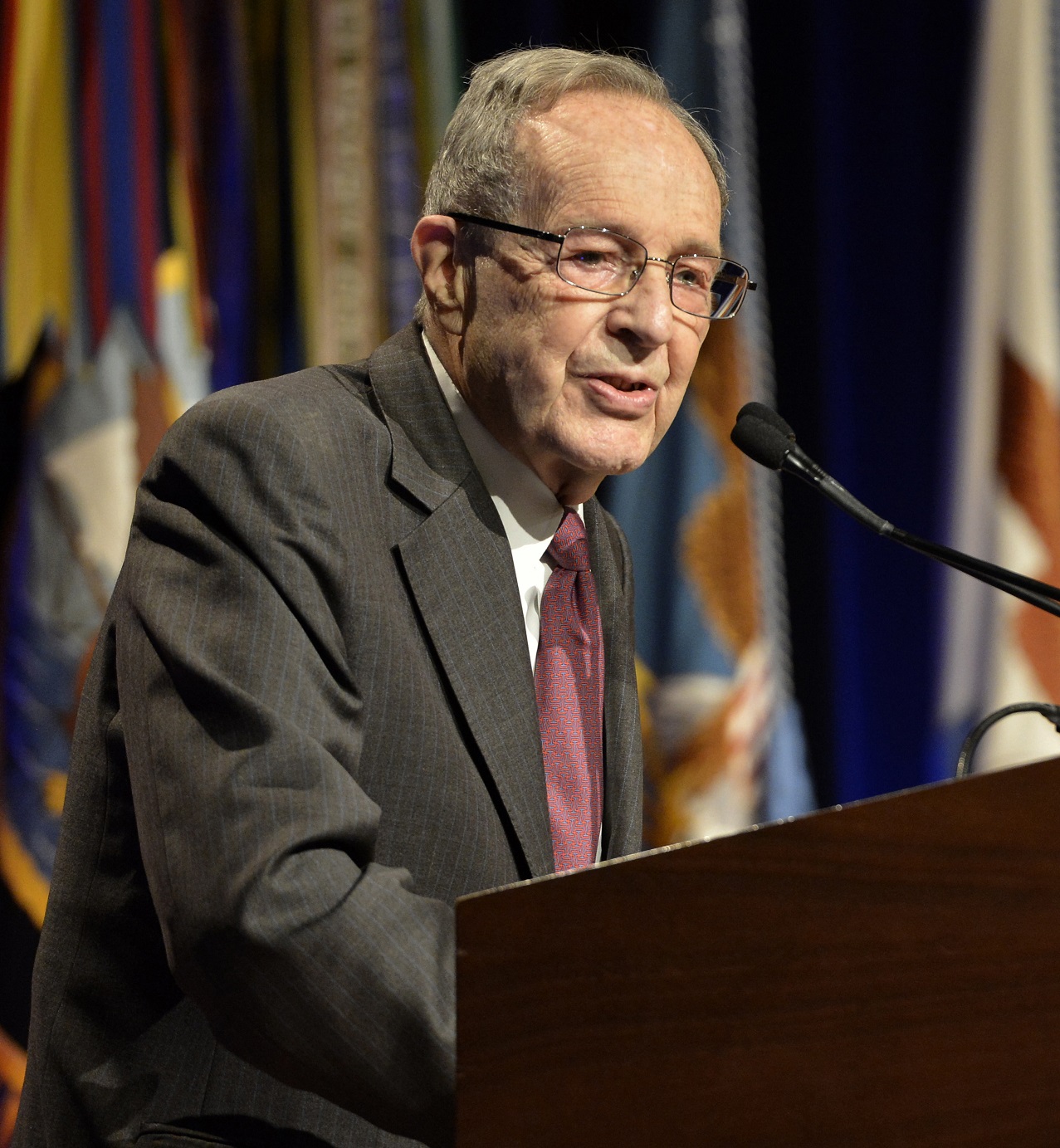Defense between February of 1994 and January of 1997 in the Bill Clinton administration. Perry was a mathematician, engineer and businessman before he became Secretary of Defense. Currently he is a professor emeritus at Stanford University and a senior fellow at the Stanford University's Hoover Institute. He is also the director of the Preventive Defense Institute. Perry has received a number of international award and is currently on the boards of several high-tech companies.
Perry is an expert in U.S. foreign policy, national security and arms control. In 2013, he created the William J. Perry Project which is a non-profit organization dedicated to educating the public on the current dangers of nuclear weapons.
Perry has just publish a memoir titled "My Journey at the Nuclear Brink." One of the points that he makes in the book is that the danger of a global nuclear catastrophe is greater now than it was at the height of the Cold War with Soviet Union. It was his job as Secretary of State to prevent the use of nuclear weapons. He says that our actions today are just not adequate in light of the growing danger of a nuclear war that could end our civilization.
His personal journey has certainly equipped him to render an informed opinion on the dangers of nuclear weapons. As a young man, he participated in the occupation of Japan following World War II. He saw firsthand the devastation wrought by the only use of nuclear weapons in warfare. During the Cuban Missile Crisis, he served as a CIA analyst. The U.S. and the Soviet Union came very close to all out nuclear war during the Crisis. He was Jimmy Carter's Undersecretary of Defense and, later, as a private citizen, he worked on nuclear arms control initiatives. One of his tasks as Secretary of Defense under Clinton was to lead the Nunn-Lugar program. This project dealt with the thousands of nuclear weapons left behind in satellite countries when the Soviet Union disintegrated. After he left the post of Secretary of Defense, he joined other former U.S. officials to raise awareness of the threat of nuclear weapons and he worked on international initiatives for nuclear disarmament.
Perry's memoir discusses four different nuclear threats to the world. Nuclear terrorism, accidental nuclear war, nuclear war caused by miscalculation and a regional nuclear war.
As part of his discussion of nuclear terrorism, Perry presents an all too possible scenario in which a terrorist group constructs a small nuclear bomb, smuggles it into Washington, D.C. and detonates it causing eighty thousand deaths and decapitating the U.S. federal government.
In his discussion of an accidental way, Perry talks about several times when the U.S. or the Soviet Union almost started World War III by mistake. There was one such incident during the Cuban Missile Crisis when a Soviet ship violated the embargo against Cuba because of a navigational error. Another such incident occurred when the Soviet Union almost launched an all out nuclear war against the U.S. because it mistook a Norwegian test rocket for a U.S. nuclear missile. There were other such incidents on both sides.
Perry's third possibility is that miscalculation could start an all out nuclear war. After the Cold War, Perry supported a gradual inclusion of eastern European nations into NATO. Other people in the Clinton administration lobbied for a rapid inclusion of countries that had once been part of the Soviet Union. Those pushing for rapid inclusion won and NATO expanded into eastern Europe. The rapid approach of NATO to the very border of Russia triggered Russian paranoia which resulted in their current aggressive stance on the use of nuclear weapons and the deteriorating relationship between the U.S. and Russia.
The fourth nuclear danger that worries Perry is a regional nuclear war. The most probable such war would be an exchange of nuclear warheads between Pakistan and India. These countries have already engaged in several wars since they were formed in 1949. Both countries are expanding their nuclear forces and Pakistan recently announced that it would be deploying tactical nuclear weapons to the Indian border. If India suffers another serious terrorist incident and attacks Pakistan with conventional forces, Pakistan might use tactical nukes against Indian ground forces. This could easily escalate into an exchange of strategic missiles which could bring about a nuclear winter that would end human civilization.
The possibilities of accidental nuclear war or nuclear war resulting from miscalculation have been with us since the Cold War. A nuclear terrorist strike or a regional nuclear war are relatively new threats. Perry claims that the four threats together pose a more serious threat to humanity than that of the Cold War. Perry believes that it is possible to eliminate or reduce these nuclear threat but that it will take hard work and global cooperation to accomplish this goal.
William J. Perry:
William J. Perry:
